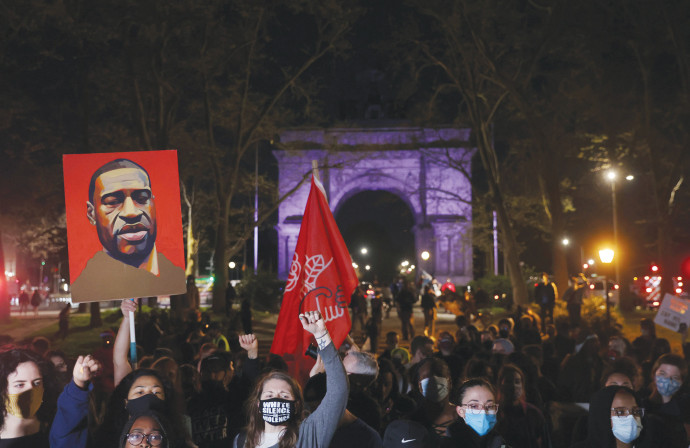
From the Floyd Story to ‘To Kill a Mockingbird,’ Insights from Harper Lee
(Israel) on 9 June 2021
by Orit Lavi Nesiel (link to original)
“I can’t breathe,” George Floyd whispered during the final moments of his life.
Police officer Derek Chauvin, with his knee pressed against Floyd’s neck, didn’t give him a chance. This incident became a symbol of racism and the pursuit of African American citizens who are marked as suspect only because of the color of their skin. The recording of Floyd’s murder went viral and ignited a wave of protests against police violence toward Black people. The guilty verdict and murder conviction that were handed down did not put an end to this difficult phenomenon, which has been part of American society since its founding.
Almost 100 years have passed between the period of time in which the events in “To Kill a Mockingbird” by American author Harper Lee took place and the Floyd episode. I returned to the story during Hebrew Book Week to discover that it is as relevant today as it was 100 years ago. At the center of the story is the rape of a white girl whose father, a mute social outcast, tries to drum up the support of his neighbors in the imaginary Southern town of Maycomb. The jury reaches a guilty verdict in the case involving the daughter at the expense of Tom Robinson, a simple man who is suspected of the rape only because he is Black and in the wrong place at the wrong time. The American justice process in the book, which is based on a pair of sworn witnesses, is portrayed as manipulative and biased and not necessarily concerned with doing justice. Confronting the American justice system is attorney Atticus Finch, who insists on seeing humans as they are and takes on the hopeless legal defense to prove Robinson is not guilty. Finch understands that Robinson’s fate is sealed because he was born with the wrong skin color, but Finch decides to take up a fight against racism.
"Do you defend niggers, Atticus?" I asked him that evening.
"Of course I do. Don't say ‘nigger,’ Scout. That's common."
"It’s what everybody at school says."
"From now on it'll be everybody less one." [“To Kill a Mockingbird”]
There is another insight from this wonderful book. Language creates awareness and has the ability to create change, even if change is slow and doesn't happen in a day. We have seen that racism is a phenomenon that knows no time or distance, and so the message of the book is still real for every society. Did law precede the struggle against racism? On the final scoreboard, Finch failed. Robinson is shot to death while trying to escape from jail, before it becomes clear that his involvement in the case is in doubt.
The story of the defense that Finch conducts stands out in Robinson’s fight for innocence. It is an indictment of white American society and the judicial system, which caves to the dictates of a powerful white ruling class ready to sacrifice a Black man in order to save one who is white solely because of skin color. The American justice system has come a long way since then.
Moreover, the Israeli judicial system is light years away from the legal system portrayed in Maycomb, but racism toward weaker minority groups is not a thing of the past. Racist views are in news reports nearly every day, as well as the comments of public officials who allow themselves to talk in generalities about Arabs, Reform Jews, immigrants from Ethiopia and anyone who is not part of the majority culture.
Whoever wants comfort will find a revelation of simple humanity in this book, but on a deeper level. Lee holds up a societal mirror that reflects a banal chronicle of evil and the ease with which “regular” humans are swept along by hatred and label others by the color of their skin. On this level, the book is an important contribution to a battle which we must continue to fight.


